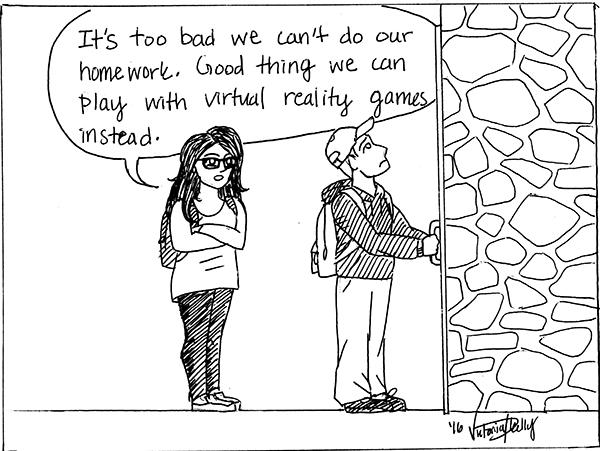Study first, video games later
October 5, 2016
At about 7 p.m. Sept. 17, three students were unable to enter Blackington Hall due to the doors being locked. In addition, the hall’s door scanners did not read the students’ identification cards.
Room 238 Blackington is said to be open 24 hours, but, if the doors are locked, this feature is useless because students cannot complete assignments that require specific software they don’t have on their personal computers.
Apparently, some professors are unaware of this problem because they don’t ask students to have required software on their personal computers saying the software is available on campus computers.
While most universities provide at least one 24-hour building for students, Pitt-Johnstown doesn’t.
Meanwhile, virtual reality video gaming equipment is being purchased for the Zone, the Student Union’s arcade. Student Affairs Vice President Shawn Brooks said that this would make Pitt-Johnstown cutting edge.
While we agree that this is a nice addition to the campus, it is not the most important. Students’ education should be a top priority.
According to Pitt-Johnstown’s website, a supportive living-learning environment is a goal. Keeping a building with computers open 24 hours would live up to the goal.
We understand doing this costs money; we also understand that virtual reality costs money, but is being paid for through auxiliary money – extra money that is neither tuition or student activity fee dollars.
A suggestion would be to use that money toward keeping a campus building , like Owen Library, open 24 hours by paying someone to be there during odd hours.
Or, the money could be used toward correcting Blackington’s door scanners. This way, students’ identification cards work, so they have easy access to the 24-hour room.
If Pitt-Johnstown is to be cutting edge, then we encourage university administrators to consider the importance of students’ education and take action in providing a 24-hour workspace.

